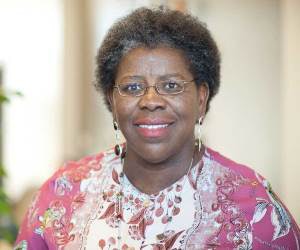During the summer months, I spend time rethinking both my teaching methods and the learning goals I seek for my students. Usually my mind will rest upon occurrences from the classroom or discussions with students in my office. This summer, though, is different. My mind continues to be drawn back to a conversation I had with several White male professors.
This year, I made a faculty presentation, as I frequently do, on teaching methods and approaches. This time my presentation was about the value of collaborative education in courses that are viewed by students as covering contentious topics, like race, gender, orientation, privacy and so forth. I urged other faculty to see the great value for our students in, first, our providing them with opportunities to work collaboratively with each other and, second, in our affording these opportunities especially on course material that directly or indirectly broaches issues upon which we seem polarized as a country. I explained to the professors in attendance that my hope is that we fully educate our students to become engaged and engaging citizens; and, where legal education is at issue, I am greatly concerned that we educate future leaders who can respectfully engage in productive debate and find viable resolutions with those who differ from them.
 Angela Mae Kupenda
Angela Mae KupendaAfter my preliminary remarks, one of the White male professors in the audience then commented that he agreed as to the great value of collaborative education in subject areas where there are areas of inevitable contention. He explained, though, his unwillingness to do such in his classroom. He said, while the steps I urged could help his students become better lawyers and leaders, he did not want to risk losing the students’ favor that he enjoys. His comment gave me great pause, and I am still thinking about it during my summer reflection.
My response to him was, “You see, I am a Black female professor and I do not automatically have the favor of my students or my institution. So since I do not routinely have their favor, I do not have their favor to lose. Therefore, I can try to educate them with methods that may make them feel uncomfortable but may enhance their abilities to create a better America.”
In the lively discussion that followed, another White male professor said he just wants to educate them to pass the bar exam and perhaps get a job. I responded that I want all that and more. But, as I explained, I have more at stake than perhaps he does. For my own safety and well being as a Black woman in America, I want my students to learn to engage with people who are different and learn to critique their own role in our currently polarized, and still discriminatory, society. I explained that these goals are more important to me than currying their favor.
Although I still believe what I emphatically stated to these White male professors, their comments have given me long pause. This summer I am still pondering the discussion. On the one hand, if Black professors do not attain some student and institutional favor, academic longevity or tenure is at risk. Yes, like many, I desire and maybe even covet favor, especially as I work very hard. Many of us want to be liked (especially given the visible displays of a “like” on our institution’s social media, or where “few likes” suggest we lack approval or favor). We want to be valued and see that value validated by our institutions in how we are treated, compensated, and otherwise rewarded.
While we may strongly desire or covet favor, or at least appreciation for our academic efforts, my lingering question is whether Black faculty can afford to curry the favor of their students and institutions? What if currying favor means suppressing our individuality and identity to approximate a mirror image of how we traditionally see White male professors? What if currying favor results in our students, whether White or of color, not having the opportunities they deserve to challenge themselves and to grow in preparation to lead this diverse country? What if currying favor means we abandon our calling or our mission in the academy or in our very lives?
If currying favor means those things, I am persuaded that Black faculty cannot afford to curry the favor of our students or institutions. As difficult as it may be, we must seek to fully teach our students and help equip them to be the aware leaders America needs, that the memories of those who have sacrificed for our freedom and progress to equality truly deserve, and that our collective and individual futures on this soil demand.
Angela Mae Kupenda is a professor at the Mississippi College School of Law.















